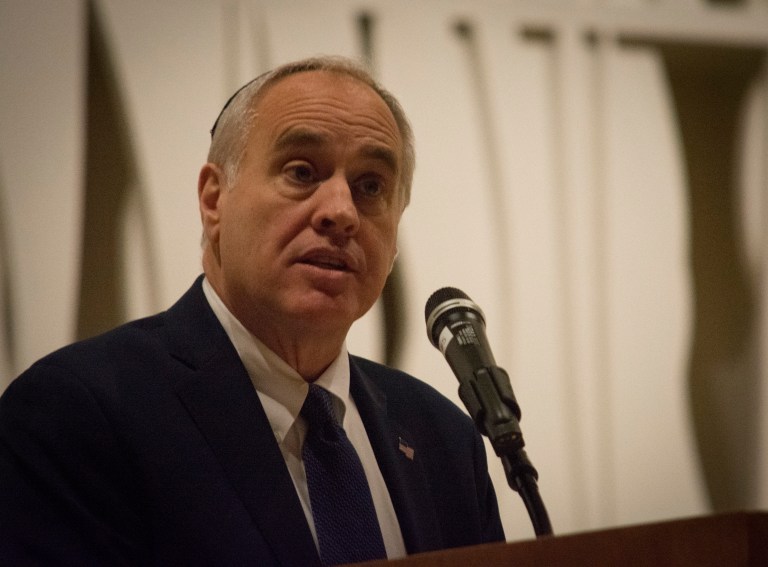
Religious and political leaders pushed for action against injustice in honor of Martin Luther King Jr. at Temple Beth-El in Great Neck last Friday, calling upon people to make tough choices and do what is right in the spirit of the late civil rights leader.
Speakers, including Rabbi Elle Muhlbaum, Roger Tilles, a member of the state Board of Regents, and state Comptroller Thomas DiNapoli, underscored the importance of fostering equality, dialogue and standing up for social justice, even in difficult times.
“We are a movement of action, of inclusivity, and of standing up for what we know is right, even when times are tough,” Rabbi Elle Muhlbaum told the crowd. “This is no time to lose hope. This is a time to bring an abundance of compassion and understanding, of openness and generosity of spirit.”
The Shabbat program also interspersed readings from Martin Luther King Jr. and leaders like the Rev. Dr. William J. Barber and former President Barack Obama. An interfaith choir, led by Nigel Gretton and Cantor Vladimir Lapin, sang songs like “We Shall Overcome” and “I Can Go to God in Prayer” together.

The annual Martin Luther King Jr. Memorial Service has been a tradition at Temple Beth-El for more than two decades. It began with representatives of Temple Beth-El and Mount Olive Baptist Church coming together in what leaders called “the Black-Jewish Dialogue.”
DiNapoli, who was the keynote speaker at the event, made note of King’s final years, when he protested American involvement in the Vietnam War and pushed for greater economic rights.
King could have “rested on his laurels,” DiNapoli said, given that he was a national icon who helped bring forward the Civil Rights Act and the Voting Rights Act that pushed for equality under the law. But instead, King pushed on, even as allies began to turn on him.
“Every day we can choose to be silent or speak out. We can choose to tear down or construct,” DiNapoli told attendees. “Dr. King’s life was full of those same daily choices and challenges. Time and time again, he could have taken the safer road, but each time he chose the difficult path. He made the courageous choice.”
“To those who asked him not to speak out, he had a strong message. He told them, ‘The time comes where silence is betrayal,'” DiNapoli added.
While great progress has been made in the 50 years since his assassination in 1968, DiNapoli said there is ongoing racial injustice and intolerance seems to be on the rise.
“If we are to take the next step and finish the work Dr. King fought and died for, each of us, including me as your state comptroller, must stand up and be counted,” DiNapoli said. “Whatever role we play in this life, we need to do our part.”






